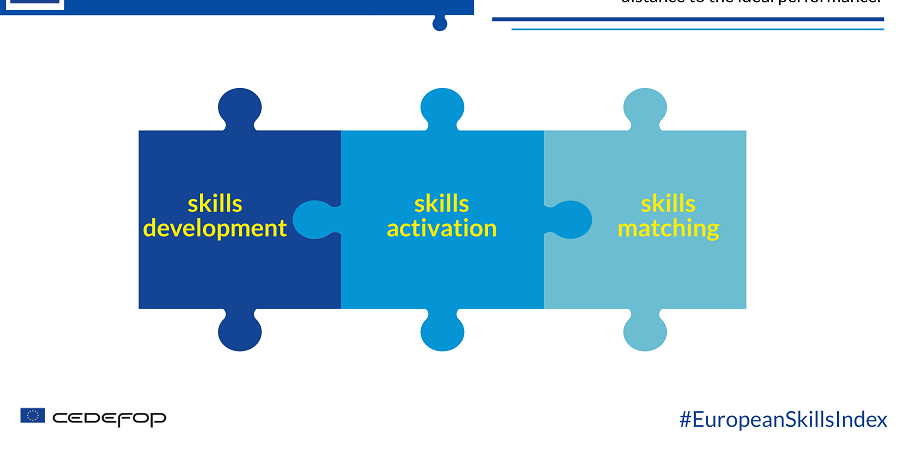Cedefop has just released the 2020 European skills index (ESI), which showcases the skills systems’ improvements made since its 2018 edition, including areas that merit further attention in each country.
Cedefop Executive Director Jürgen Siebel notes: ‘The European skills index is a tool designed to help the implementation of the European pillar of social rights. For an efficient skills system, it is important not only to develop skills appropriately, but also to ensure a good transition from education to work and appropriate matching of the skills acquired to those needed in the workplace.’
The new release includes 31 countries: the EU-27, the UK, Iceland, Norway and Switzerland.
Cedefop expert Ilias Livanos points out that ‘the skills system is a cornerstone to the development and growth of each country, as it is a means towards individuals’ development and wellbeing.’
Cedefop created the ESI to help countries observe over time where they stand with respect to skills systems, how they are doing in comparison to each other, what the areas with room for improvement are, and where to look for best practices.
Czechia scores highest in the 2020 European skills index, followed by Finland, Slovenia, Luxembourg and Estonia in the top five. Italy is the lowest scoring country.
Czechia scores a total of 77/100, which means that, even if it has the best skills system in Europe, there is still a long way to go to reach perfection. Czechia ranks only 10th and 13th in skills development and activation respectively, but scores first in skills matching. This example highlights the importance of skills matching to achieve a well-functioning system. Sweden, ranking third in 2018, has now gone down to sixth place, due to poorer performance in skills matching.
In general, there seems to be an improvement of the skills system in the EU over time. In 2020 half of the countries achieved a total score above 63/100, while in 2018 this number was 1 in 4 countries. Most of the southern Europe and Balkan countries, with the prominent exception of Slovenia, should increase their efforts further, as they remain low in the ranking.
Cedefop’s ReferNet network will provide further assistance in 2020 in monitoring progress and highlighting areas in need of improvement.
You can find more information about the ESI in Cedefop’s briefing note, promotional video, flyer, publication and the Skills Panorama website.







